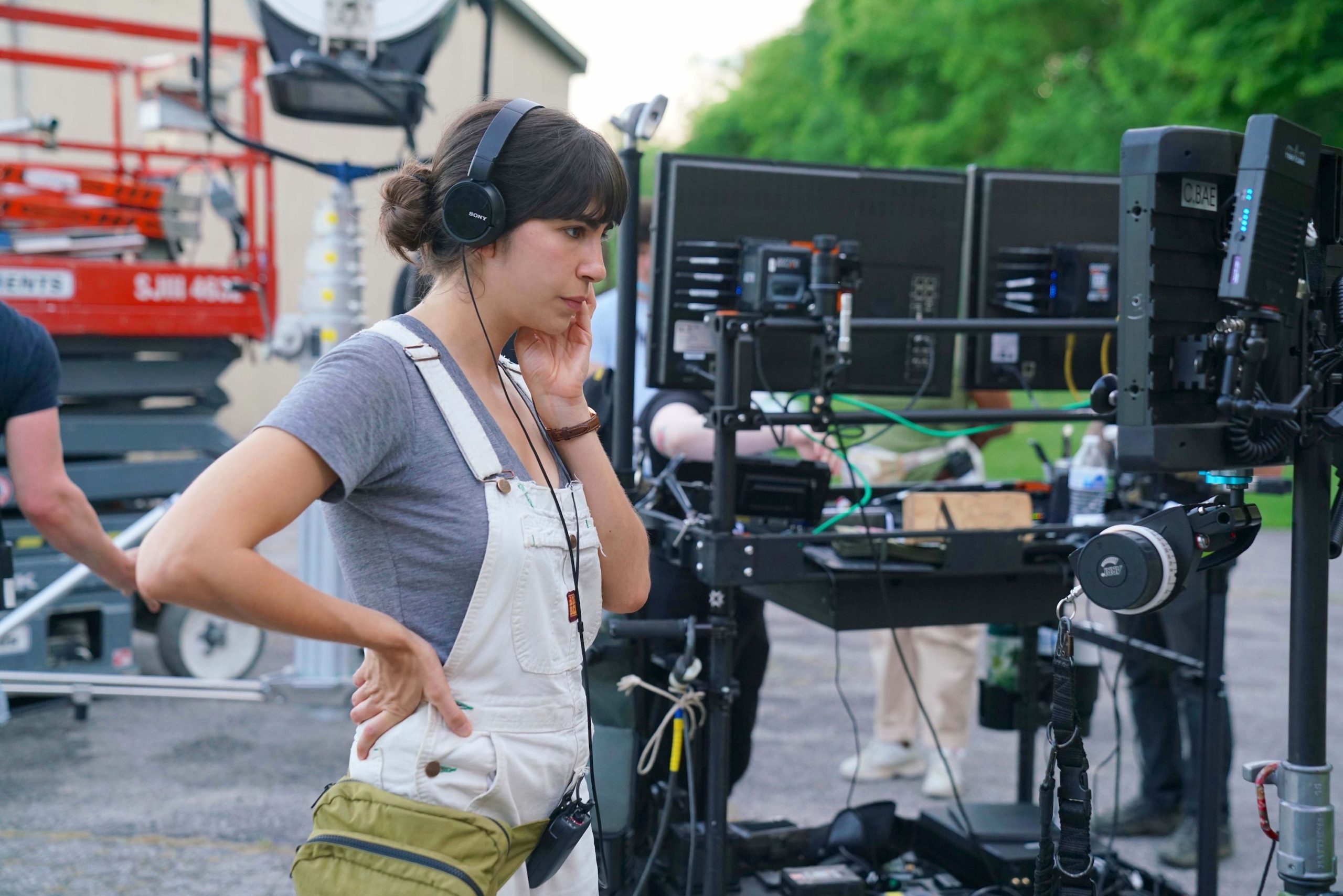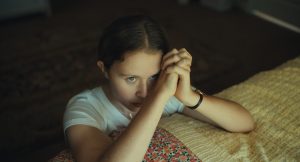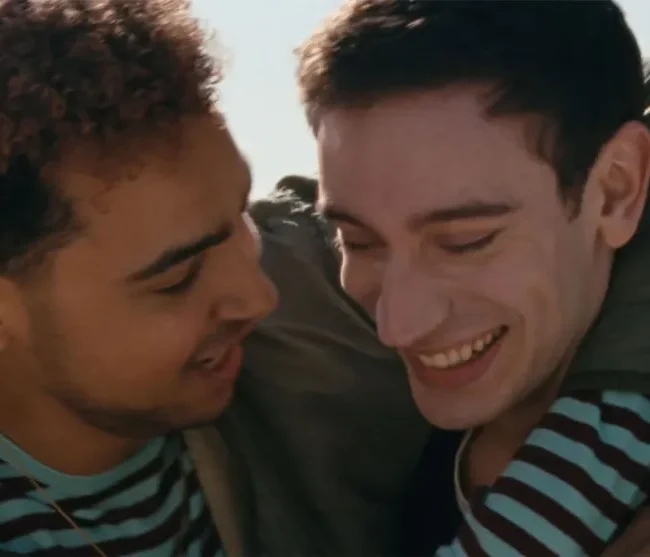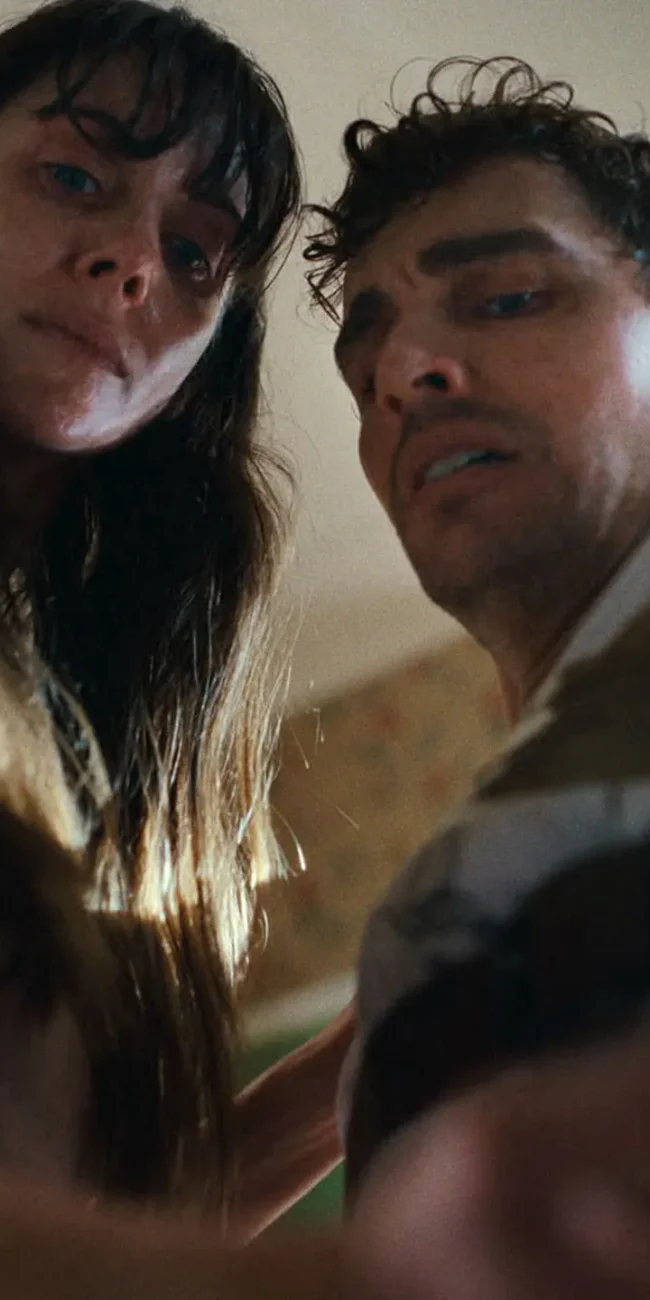A Conversation with Laurel Parmet (THE STARLING GIRL)

Director Laurel Parmet’s debut feature film, The Starling Girl, premiered at the 2023 Sundance Film Festival (I saw it at SXSW 2023 and just reviewed it for its May 12 release), where it secured distribution from Bleecker Street Media. It follows the story of Jem Starling, a young woman on the cusp of adulthood who lives in a patriarchal religious community in Kentucky. Despite her strict upbringing, she has a rebellious streak that comes to the fore when she develops feelings for the twentysomething youth pastor. Holy hell soon breaks loose. Jem is played by the immensely talented Eliza Scanlen (Babyteeth), who receives strong support from a terrific ensemble. I spoke with Parmet by Zoom last week, and here is a transcription of that conversation, edited for length and clarity.
Hammer to Nail: What was the origin of the story? You say in the press notes that it’s dear to your heart.
Laurel Parmet: It started with a personal connection. When I was a teenager, I had a relationship—or whatever you want to call it, I don’t even know—with an older man. I didn’t see myself as a victim at the time, and felt that I had a lot of agency and felt like I was mature enough. Then, after it ended, I had a lot of guilt about it, but I didn’t excavate that, and I just pushed it aside and didn’t think about it for a while. Years later, I found myself in Oklahoma doing research for a different project and I came across a group of women from a patriarchal church, and spent time with them initially for this other project thinking that it could be helpful with one of the characters. I learned about their beliefs, and when I first heard what they believed, I was a bit taken aback about how it’s the woman’s responsibility to not lead a man into temptation and that women have to submit to men, so female submission is ordained by God and that their bodies don’t belong to them.
At first I was like, “God, that’s so backwards.” But the more that I thought about it—and this is probably a really obvious statement to make now, but it was kind of eye-opening to me at the time—it was just how much we had in common, just in terms of the attitudes and the cultures that we grew up in, around attitudes towards female sexuality and our responsibility to tame that sexuality and just shame around desire. My time with them ended up being this really eye-opening thing for me because it made me reflect back on my relationship in ways that I hadn’t before, and it made me recognize this guilt that I had and start to ask myself, “Why do I have this guilt despite the fact that this person was taking advantage of me, and where did I learn that, and what does that say about how I grew up?”
So, these things, the sexual shame and seeking approval in men, are really these universal experiences for women, no matter how you grew up. I wanted to tell a story looking at my experiences and set it in this world to really reflect our own world and look at ways that these stories about trying to figure out who you are in a world that places so many expectations on you is so difficult, and I think that’s something that everyone can relate to.
HtN: Thank you for sharing. Hearing you talk about it in that way makes me see certain parallels with a movie like Women Talking and the book by Miriam Toews. They are obviously very different, but there are certain thematic parallels. I also really appreciate, in your movie, that despite the fact that there’s some clear misbehavior, you strive to give everyone a point of view and to allow everyone their full humanity, because after all, human beings are the ones who can do good and bad. Was there an earlier version of the script where that was not the case? How long did it take you to get the script to that point where you really had fleshed-out characters, or was it that way from the beginning?
LP: That’s a great question. I will say that my first draft was really angry. I had a really angry draft where I was taking a lot of my anger out on some of the male characters, but it was the first draft and I always knew that it was my goal to strive for nuance. With each rewrite, it was really just about, yes, how do we tell the story while giving humanity to each of the characters and making it so the audience is invested in each character no matter what their beliefs are, rather than watching judgmentally from afar? How do we show that patriarchal systems are harmful to everyone, not just women, not just focusing on that side of the story? How do we make it so that the film isn’t blaspheming God and that it’s really more a complex look at faith and suggesting even that there are many ways to connect with God? That is a reflection of the characters and what’s truthful for the characters, and how do we get the audience invested in these characters? Ultimately, how do we tell a good story at the end of the day? Because I think when audiences are invested in the characters, it’s compelling rather than just sitting back and being angry and then judging them. It’s important to really just have the audience be emotionally involved.
HtN: That is great storytelling advice. Part of what helps us be invested is your writing, obviously, but then the cast; you have an amazing cast. What was that process like of casting them?

A still from THE STARLING GIRL
LP: I mean, yes, Eliza Scanlen is incredible, and I love her and I love working with her. All of the cast were honestly so wonderful to work with. No divas, it was just lovely people who were there to do the work and who were passionate about the story. I like to be surprised when I’m casting, I try to maybe aim for less obvious choices. I think that also really helps to round out the characters and flesh out the characters and steer clear of caricature. With Lewis Pullman’s character, with Owen, he could have very easily veered into this one-dimensional predator, and I wasn’t interested in that, I wanted to show how Jem could fall for this guy and maybe have us fall for him a little bit, as well.
So with Lewis, I mean, first, he’s an incredibly talented actor, but also just has a sweetness and a charisma and a gentleness that I didn’t want his character to be threatening, I wanted the audience to be lulled in by him. Just Lewis being who he is and how he played that character really helped with that. With Jimmi Simpson, I’ve mostly seen Jimmi either be a total goofball or a psycho. You rarely get to see maybe a sweeter, more tender side and I don’t know if I’ve ever even seen him play a father; maybe he has but I haven’t seen it. That was an unexpected choice, I think, and I’m so proud of the work that he did in this film and what he brought to that character. That character could have been harsh and maybe a stereotypical drunk, and Jimmi just really helped to ensure that he was complex.
HtN: This was your first feature film, although you’ve made a number of shorts. What for you was that jump like from the shorter format to a larger production?
LP: Honestly, it felt really natural. I felt really ready to direct a feature. Getting this film made maybe took a little bit longer than I wanted it to, but honestly, in the end, I’m really grateful for it because maybe I wouldn’t have been as ready to make it four years ago. It felt very natural to me, and I was surprised by how not stressed I was, and just what a joy it was to be on set and how much fun I had working with the crew and working with the cast. I think the learning curve for me was: 1) sustaining the stamina for a five-week shoot, and just learning how to take care of my body so that I could do that, so that I could mentally be able to do that, and 2) I learned a lot about scheduling.
I mean, that was a thing, like you live or die by your schedule, and that was something that you don’t really have to think about as much with shorts, it’s like four or five days. But yeah, just scheduling and being conscious of where in the schedule I’m putting really emotionally taxing scenes for the actors. All of that, I think, was the biggest learning curve. But I had an amazing AD [Assistant Director] and an incredible DP [Director of Photography] and producing team and we are able to figure it all out.
HtN: Well, the results are definitely pretty amazing.
LP: I think also, at the end of the day, it’s really just about prepping the hell out of it, and that’s something; I think I over-prepared just to make sure that I was ready, and that was great. There’s never anything wrong with over-preparing, because then it gives you the flexibility to pivot on the day.
HtN: Absolutely. Unless you have the Hitchcock problem, which is where you prefer the pre-production to the production, and then you’re bored during the production. So, final question: your film is being released by Bleecker Street Media. Can you talk about the process of getting your film picked up by a distributor?
LP: I’m trying to remember. Honestly, Sundance is such a blur, and I also had COVID at the end of it. But the offer came at Sundance, and I think we were all just so ecstatic that the film was going to have a life, because it’s hard out there for indies, these days especially, and there are dwindling forms of independent distribution out there. I’ve had friends who have released films with Bleecker and I love the films that they release, and they have a reputation for being incredibly filmmaker-friendly and for giving each of their films attention, tailored specifically to what that film is and the needs of the film. They’ve been great partners and we feel very, very lucky to be working with them.
HtN: Congratulations on being picked up and having your release on May 12th. I enjoyed the film. I wish you all good things, Laurel.
LP: Thank you!
– Christopher Llewellyn Reed (@ChrisReedFilm)
Bleecker Street; Laurel Parmet; The Starling Girl movie review











